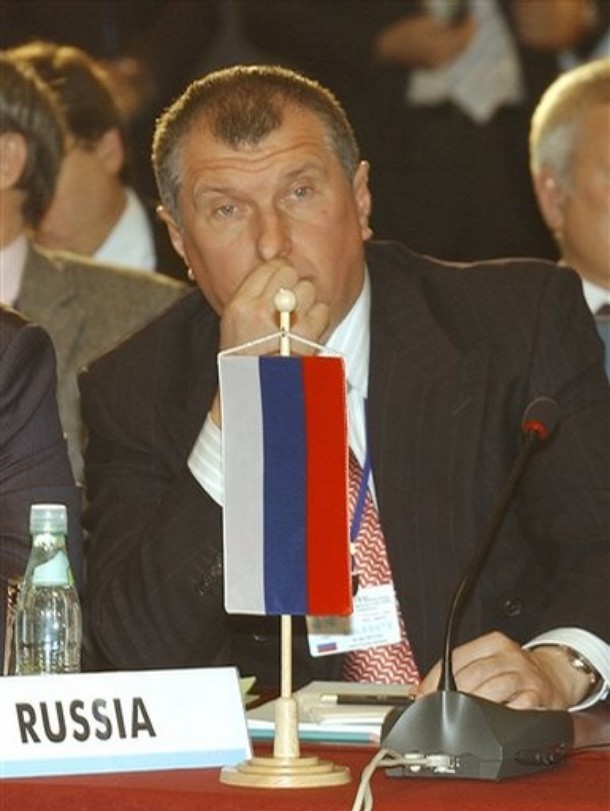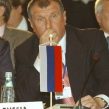
Russia Seeks Stronger Ties with the Arab World
Publication: Eurasia Daily Monitor Volume: 6 Issue: 121
By:

The Russian government has pledged to revive its economic ties with Arab nations. However, Moscow’s relations with the Arab world now hardly sound reminiscent of the Soviet-era alliance, as the Kremlin has struggled to cooperate with major Arab energy producers.
The Russian first Deputy Prime Minister Igor Shuvalov recently told a Russo-Arab business forum in St. Petersburg that the country should seek closer economic cooperation with the Arab world. On June 4 he explained, "Russia never pursued anti-Arab policies," but Russian polices cannot be entirely pro-Arab since Moscow had to balance its interests. Shuvalov also said that Russian state-run banks are currently pursuing talks with Arab banks over possible joint ventures, adding that the creation of Islamic banking institutions in Russia would not require any special legislation (Interfax, RIA-Novosti, June 4).
Participants of the Russo-Arab business forum appeared to agree that economic cooperation between Russia and the Arab world needed a significant boost. Amr Dabbagh, the head of Saudi Arabian General Investment Authority, told the forum in St. Petersburg that trade between the Arab world and Russia currently totals $8 billion annually, well below the existing potential of both sides. Qatar’s Economy and Finance Minister Youssef Kamal reportedly advocated the development of joint energy projects with Russia, but he did not elaborate on any specific details (Interfax, June 4).
In recent years, as the Kremlin pursued its energy interests it tried to band together with major suppliers in the Middle East. Last year, Russia joined efforts to forge a powerful natural gas grouping. In October 2008, Russia, Iran and Qatar agreed to boost cooperation, and create a new forum for joint gas projects. The "gas troika" inked a deal to form a supreme technical committee, and meet regularly. These moves were widely seen as aimed at the future creation of an organization of gas exporting countries. Russia holds some 25 percent of the world’s proven natural gas reserves, while Iran has around 16 percent and Qatar more than 14 percent.
On December 23, 2008 Russia hosted a meeting of the Gas Exporting Countries Forum (GECF) in Moscow. Apart from Russia, Iran and Qatar, the GECF also includes Algeria, Indonesia, Libya, Malaysia, Nigeria, UAE, Egypt, Trinidad and Tobago and Venezuela. Yet despite intensive Russian lobbying, the GECF is yet to be transformed into an OPEC-style cartel on natural gas.
In the immediate aftermath of an agreement to move towards a natural gas cartel-like grouping, Russia has attempted to foster its ties with the oil cartel, OPEC. In December 2008, Moscow dispatched a powerful delegation to the OPEC meeting, led by Deputy Prime Minister Igor Sechin, Energy Minister Sergei Shmatko and top executives from its oil companies. At the meeting, Sechin said Russia would pursue the status of permanent observer in OPEC and supported output cuts.
Senior Russian officials claimed that the country was prepared to cut oil production. On December 11, 2008, President Dmitry Medvedev said that Russia could limit crude output in a bid to inflate prices. In October 2008, Medvedev told OPEC’s Secretary-General Abdullah al-Badri that he was interested in sustaining stable and predictable prices, and in good relations with OPEC member states.
Russian authorities have welcomed earlier decisions by OPEC that aimed at calming down the markets and to make oil prices acceptable for both producers and consumers. Moscow has long pledged to cooperate with the OPEC, but ruled out joining the organization. Meanwhile, OPEC made it clear that major oil producers, including Russia, should be part of any output cuts to strengthen oil prices. However, Russia has proven slow to deliver on its pledges to cut oil production in 2009, and Russian oil companies reportedly increased crude exports, thus sparking OPEC’s displeasure.
Subsequently, Russian relations with OPEC have become strained and officials did not attend the OPEC meeting in May. Furthermore, Russian officials sounded increasingly critical of OPEC. On June 5, Sechin described OPEC’s efforts to control oil markets as insufficient. Deputy Prime Minister and Finance Minister Alexey Kudrin also criticized what he described as "pro-cyclical" and inefficient OPEC’s policies. Vagit Alekperov, CEO of the Russian major oil company Lukoil said Russia will not join OPEC any time soon (Interfax, Kommersant, RIA Novosti, June 5-6).
Apart from these economic considerations, the Kremlin has tried to embrace the Arab and Muslim world by seeking observer status with the Organization of Islamic Conference (OIC). In October 2003, then Russian President Vladimir Putin told the Malaysia summit of the OIC that Russia’s 20 million Muslims are an inalienable part of the nation. In 2005, OIC accepted Russia as an observer on a permanent basis. In December 2005, Putin described Russia as "the most reliable partner of the Islamic world."
Last month, the Russian Foreign Minister Sergei Lavrov attended the 36th ministerial meeting of the OIC in Damascus. During his meeting with Hamas leader Khaled Mashaal on May 23, Lavrov accused the West of trying to isolate Hamas thus sparking the crisis in Gaza. Nonetheless, on June 4 Lavrov hailed cooperation with the U.S. in pursuing the Middle East peace process. He also welcomed the U.S. support for the two-state solution for Israel and Palestine (Interfax, June 4).
Therefore, Russia has apparently backed up its pledges to revive its economic ties with Arab nations through some political gestures. Yet, it remains to be seen whether Moscow can forge better relations with the major Arab energy producers.




